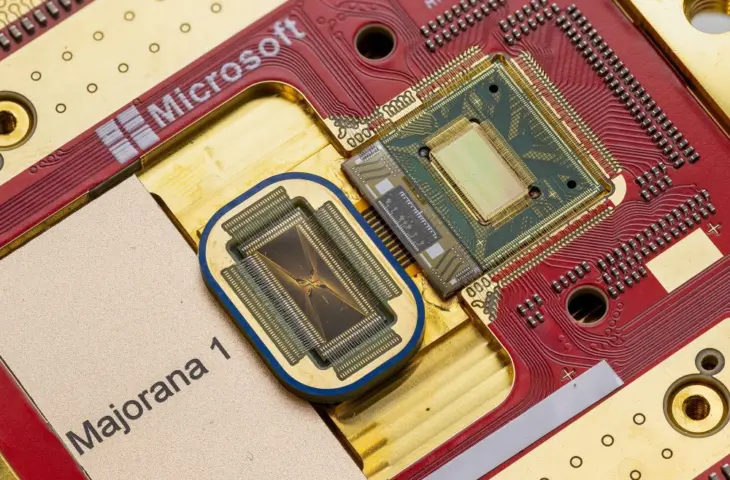Microsoft claims a major breakthrough on quantum computing. With Majorana 1, after seventeen years of research, the company is unleashing on the world a quantum chip that is fundamentally different from existing ones, opening the door to far-reaching scalability.
Microsoft claims that it can take credit for a major breakthrough in quantum computing research. Indeed, a research project that has been ongoing within the company for seventeen years is bearing its first fruit with Majorana 1.
Error-prone
Majorana 1 is a quantum chip, but not just any old one. Microsoft argues that its fundamentally different approach to the chip opens the door to scalable and stable quantum computing.
Researchers worldwide are trying to build a scalable quantum chip that can fit thousands and millions of qubits, but are running into many obstacles. Qubits (the quantum equivalent of binary bits) are unstable and error-prone, leading to errors and data loss. Scalable error correction is one of the biggest challenges facing quantum researchers today.
Majorana article
Most research today focuses on qubits made with electrons. Physicists among readers will already suspect that Microsoft is opting for a different particle. In 1937, physicist Ettore Majorana described a particle that bears his name. Microsoft is building the qubits on Majorana 1 with that particle.
That required a lot of research. The research project is not for nothing the longest-running within Microsoft. Microsoft had to invent a new material that could observe and control Majorana particles. It did just that with the introduction of a so-called topoconductor, made of aluminum and indium arsenide.
Fewer qubits, more scalability
Majorana 1 contains eight topological qubits. That is less than what competitors such as Google and IBM already presented. This year IBM plans to launch a chip with 4,000 qubits, Google last year with Willow showed a chip that can run certain workloads faster than traditional supercomputers with 105 qubits.
However, such quantum chips based on electrons continue to struggle with the complexity of error correction, which makes scalability difficult. Microsoft claims the Majorana architecture is capable of housing up to one million qubits on a chip the size of a classical processor.
With that quantity of qubits comes a complexity that can provide real breakthroughs. After all, the goal of quantum chips is quantum supremacy. In doing so, quantum computers show themselves to be consistently and significantly faster than classical binary computers for certain workloads.
A quantum computer within a few years
Microsoft is optimistic. With the Majorana 1 breakthrough, the company expects to build a prototype computer with sufficient fault tolerance and a useful amount of qubits within just a few years.
In the US, the government already believes in the Majorana approach. DARPA, which supports futuristic military projects, is putting its shoulders to the architecture developed by Microsoft.
